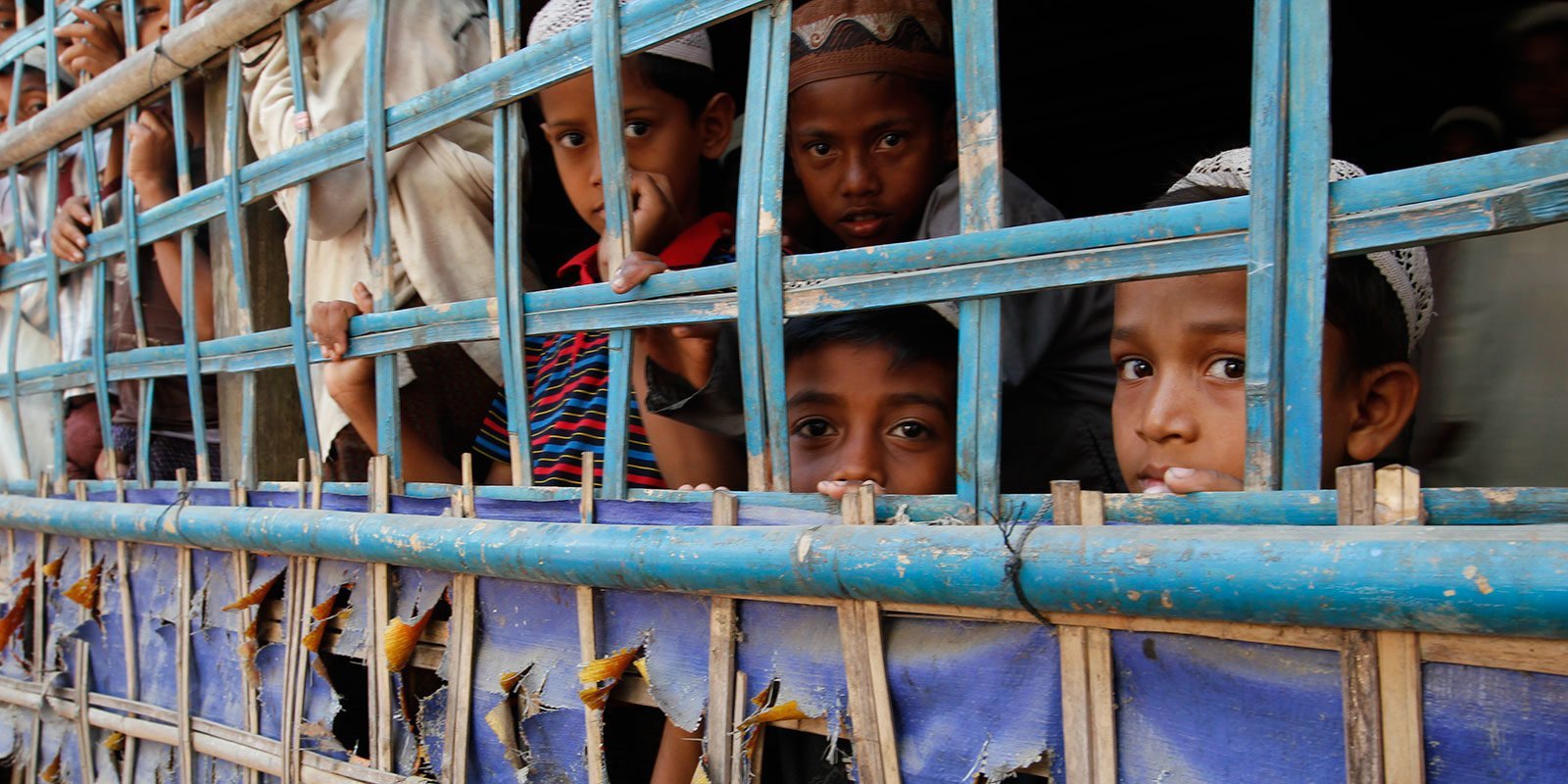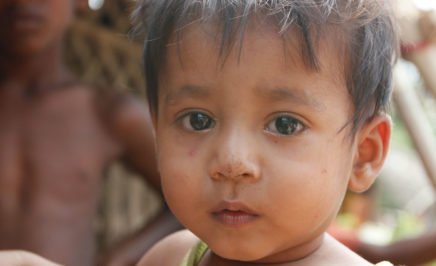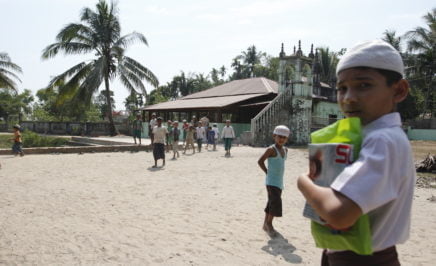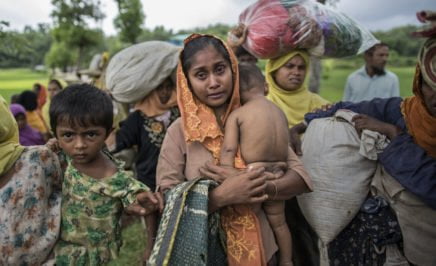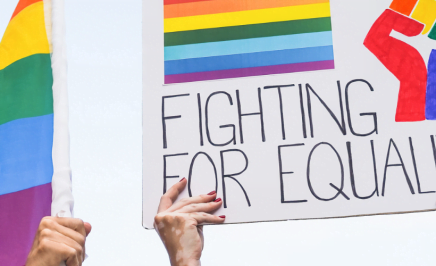Since August, security forces in Myanmar have waged a devastating campaign of violence against the Rohingya minority in Rakhine State.
An unknown number have been killed, women and girls have been raped, at times in front of their families, and entire villages have been burned to the ground. As a result, more than 600,000 Rohingya have fled into neighbouring Bangladesh.
Amnesty International researchers have carried out a two-year investigation into the root causes of these appalling events. Our report, “Caged without a roof”: Apartheid in Myanmar’s Rakhine State, reveals how Myanmar’s authorities have confined the Rohingya to what is effectively an open-air prison through a vicious system of institutionalised discrimination and segregation that severely restricts their human rights. It’s a system that affects their freedom of movement, their ability to access adequate food and healthcare, and their right to an education.
Amnesty International concluded that this treatment amounts to apartheid.
“We don’t have access to healthcare, to education, there are restrictions on travelling…it’s like being caged without a roof.”
– 34-year-old Rohingya man
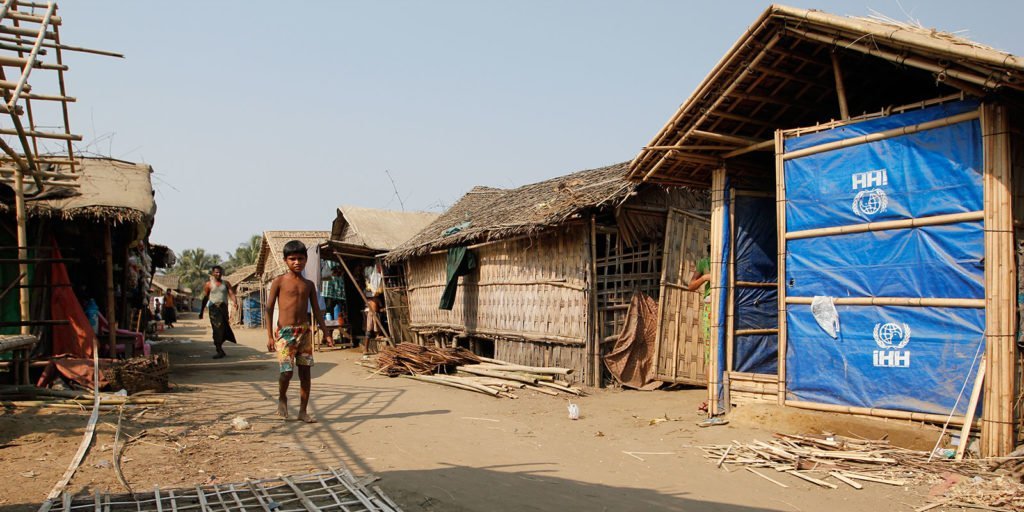
What is Apartheid?
Apartheid is a crime against humanity. It is conduct imposing and maintaining a regime of systematic oppression and domination by one racial group over another within a country.
It’s a system that’s upheld by legislative and administrative measures, policies and practices all designed to isolate a racial group – in this case the Rohingya – to deny their human rights and to stop them from participating in the political, social and economic life of a country. In practice, acts of open violence such as rape, torture and unlawful killings have been also used to as tools of oppression and domination.
“We are extricating ourselves from a system that insulted our common humanity by dividing us from one another on the basis of race and setting us against each other as oppressed and oppressor. That system committed a crime against humanity.”
– Nelson Mandela, 1998
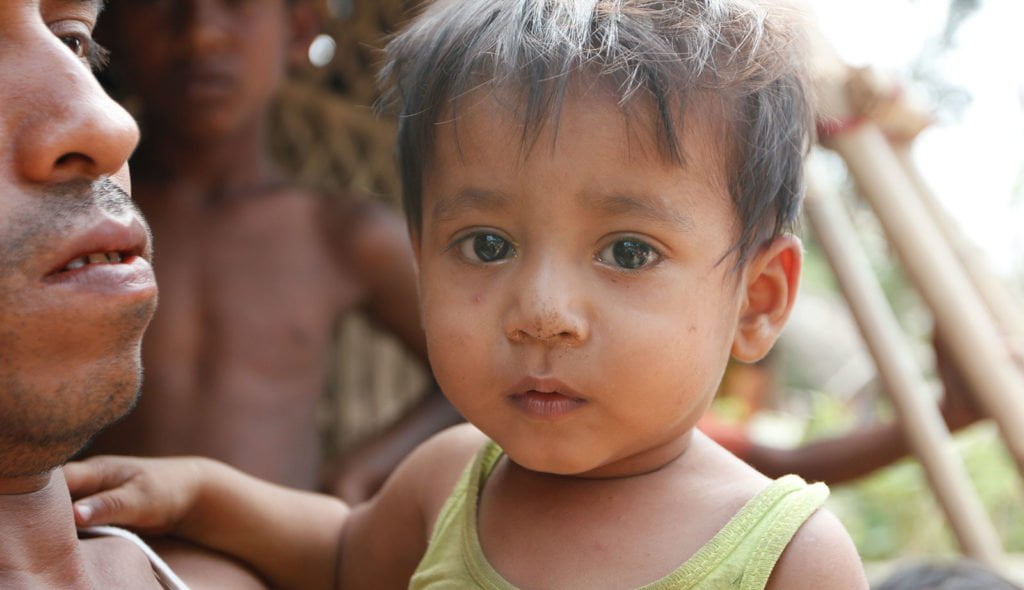
An open-air prison
Rakhine state is in the west of Myanmar bordering Bangladesh. It is home to a diverse range of people, though the majority of the population is predominantly Buddhist ethnic Rakhine. However, its mainly Muslim ethnic minority, the Rohingya, are confined to their villages, townships and squalid displacement camps – effectively sealed off from the rest of the State and of Myanmar.
In the northern townships where most Rohingya lived until the recent exodus, travel between villages is heavily restricted, while in some areas of the central part of the region, travel is only possible via waterways, and even then, only to other Muslim villages.
Official regulations mean Rohingya must undergo a complicated process to obtain permits if they want to move between townships.
In practice, only Rohingyas living in the northern townships of Maungdaw and Buthidaung have been able to do this in recent years, and then only from one to the other. Those that do obtain a permit to travel encounter regular security forces checkpoints where they are routinely harassed, forced to pay bribes, and may be physically assaulted or arrested.
“We are not allowed to go out of this area…how can we survive like this?”
– Elderly woman living in Aung Mingalar
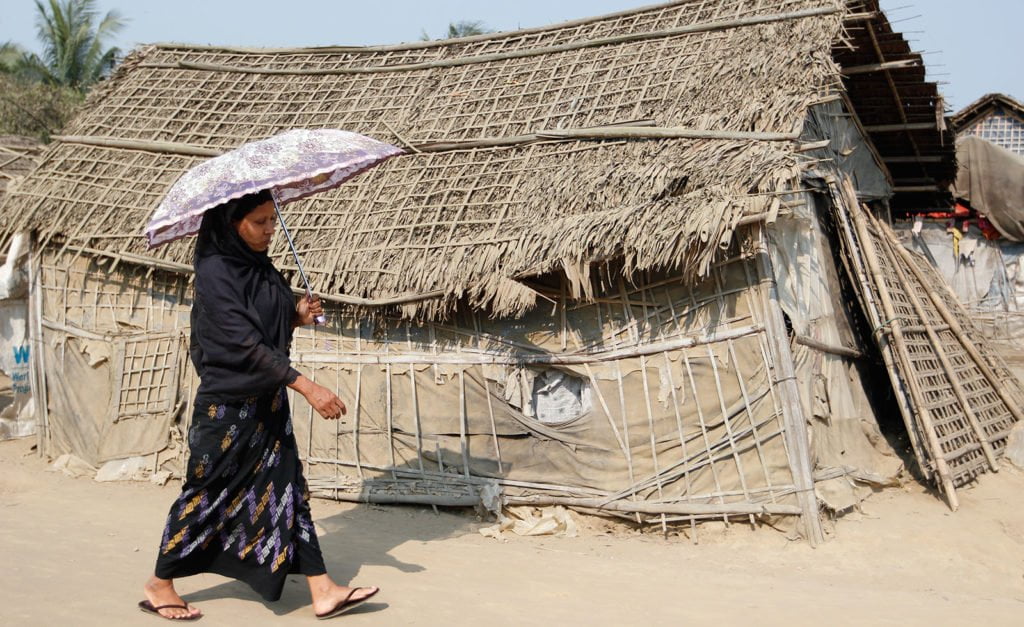
Restricted access to medical care
Authorities have severely restricted Rohingya from accessing the state hospital in Sittwe.
Only in the most serious of cases will Rohingya patients be accepted, and even then, only after special permission has been given by the Rakhine State authorities and the sick must travel with a security escort.
Once admitted, they are placed in separate “Muslim wards” and are vulnerable to extortion and other “fees” from police and hospital porters.
“I wanted to go to Sittwe hospital for medical treatment, but it’s forbidden.”
– Former farmer, who was suffering cirrhosis of the liver

A hopeless future
Educational opportunities for the Rohingya are extremely limited. Across much of the region, Rohingya children are no longer allowed to attend schools they previously went to alongside their Rakhine peers. In many areas government teachers have refused to come to schools in Muslim villages and village tracts, citing fears for their safety.
For most Rohingya students, going to university is an almost impossible dream. Faced with such dim prospects, young Rohingya look to the future with a sense of despair and hopelessness.
“I want to study more. I want to be a doctor, but I can’t because the authorities won’t let us.”
– 16-year-old Rohingya girl
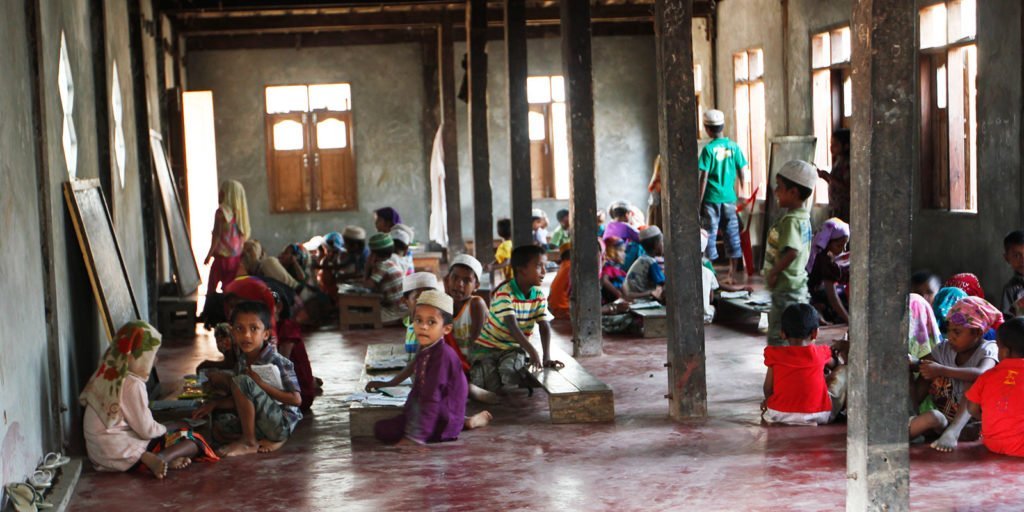
Depriving identities
Myanmar’s authorities have used legal means to take away the rights and status of Rohingya for decades. In 1982, a law was passed which allowed the authorities to deny Rohingya citizenship rights
In recent years, the authorities have gone further still. It’s now very difficult to register newborn Rohingya babies even on “household lists” – often the only way for families to prove their residence in Myanmar.
In northern Rakhine State, anyone not home during annual “household inspections” runs the risk of being deleted from official records. These measures are all part of a wider effort to make the lives of the Rohingya in Myanmar as hopeless and humiliating as possible.
“Muslim children aren’t listed anywhere else, so if they are not on the family list, they don’t exist.”
– Former humanitarian worker operating in northern Rakhine State
